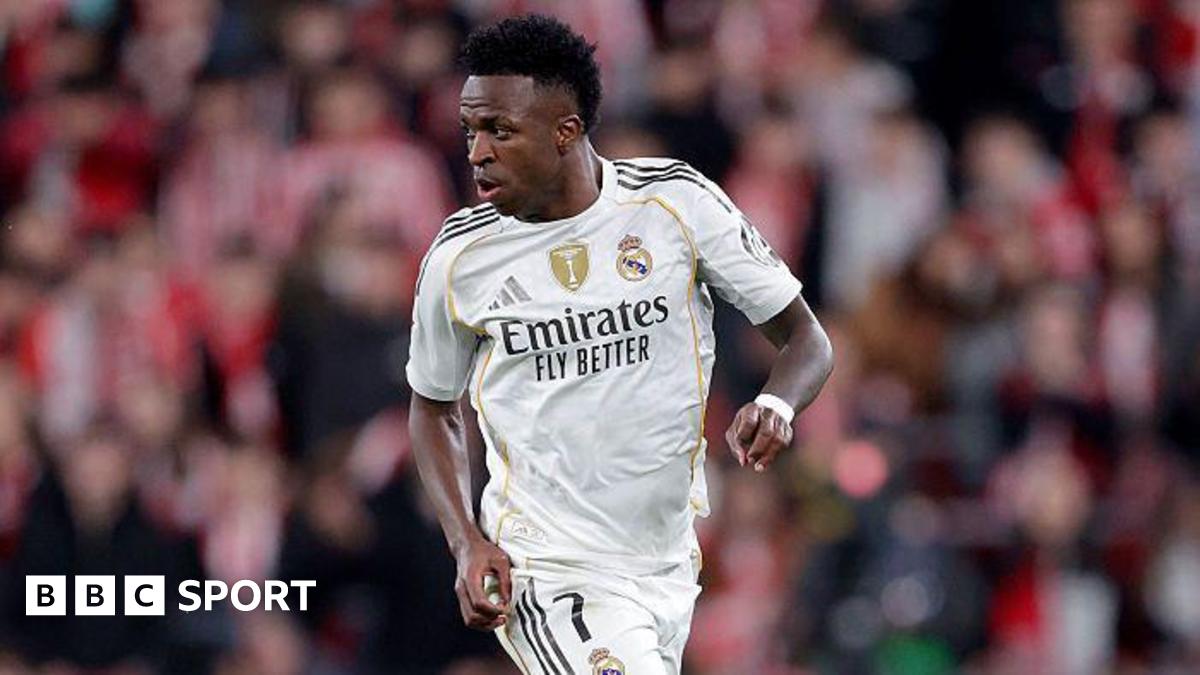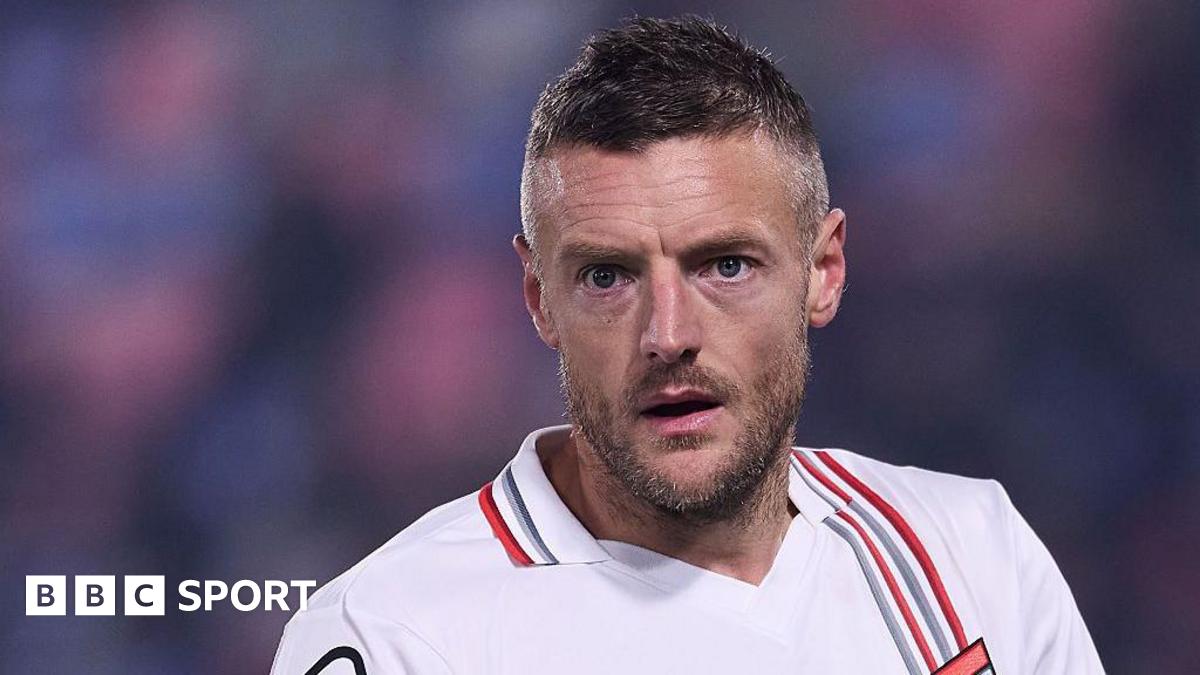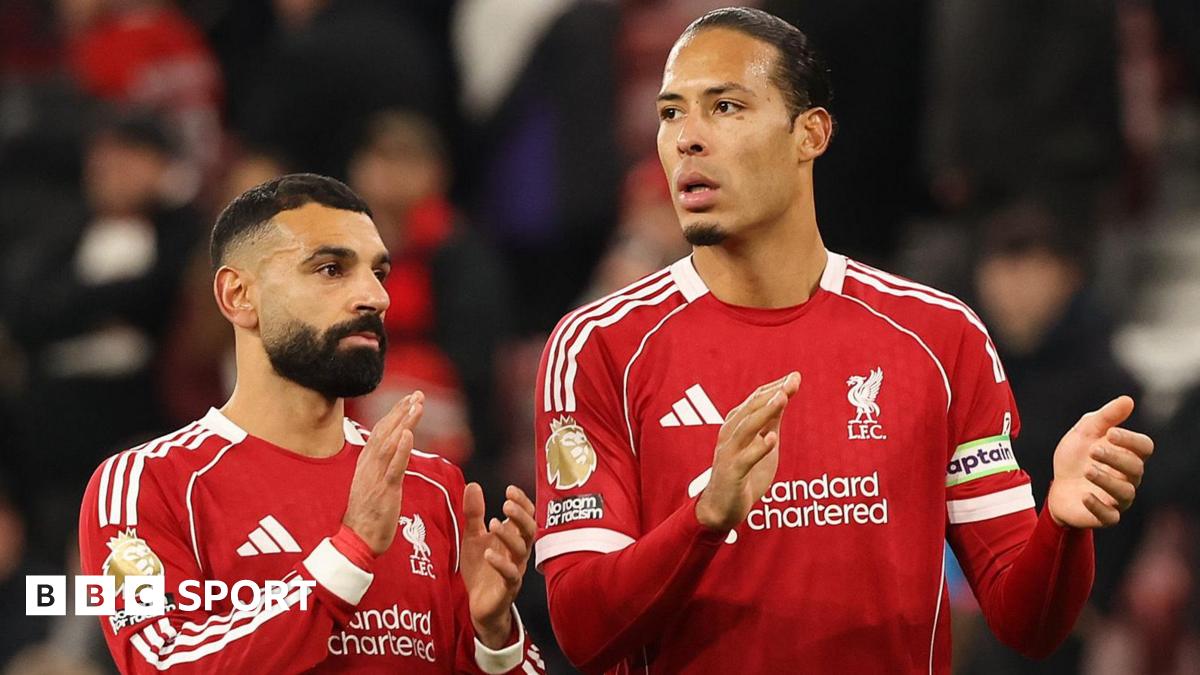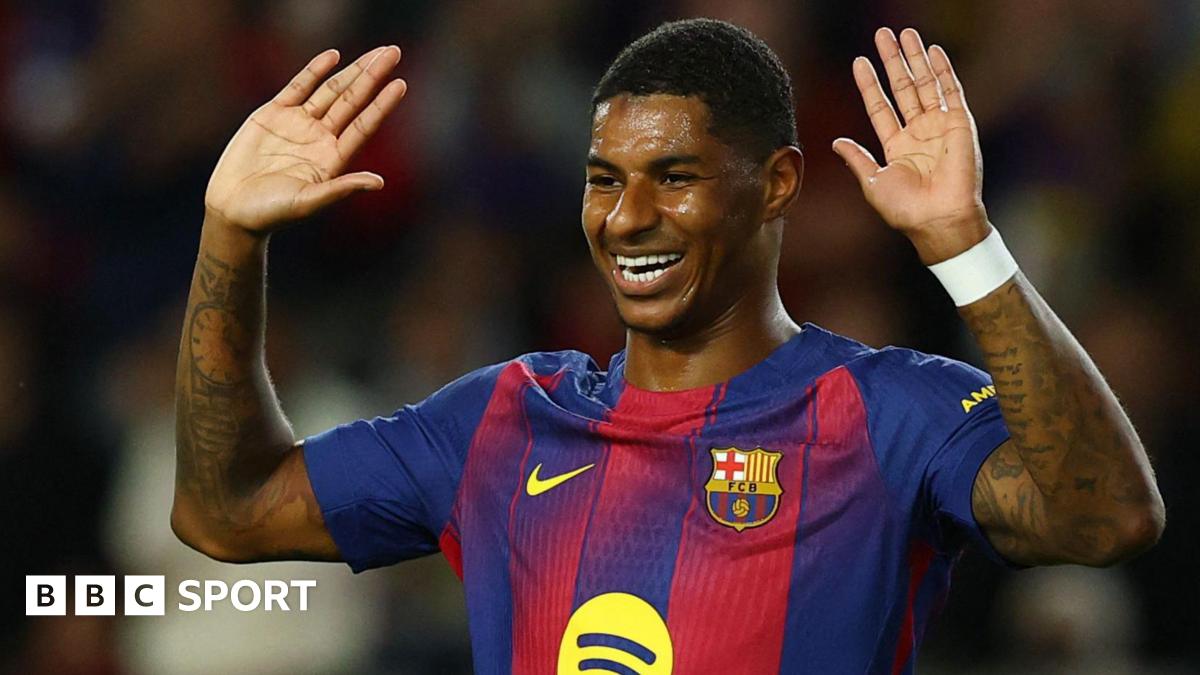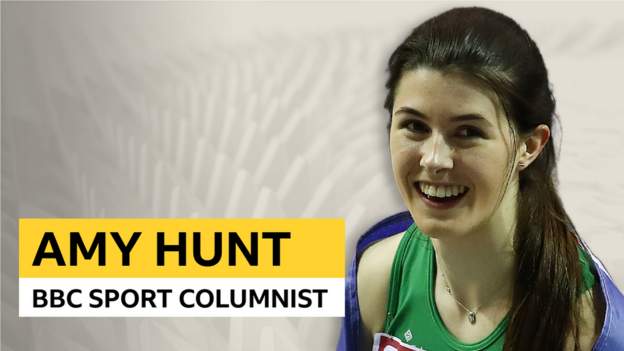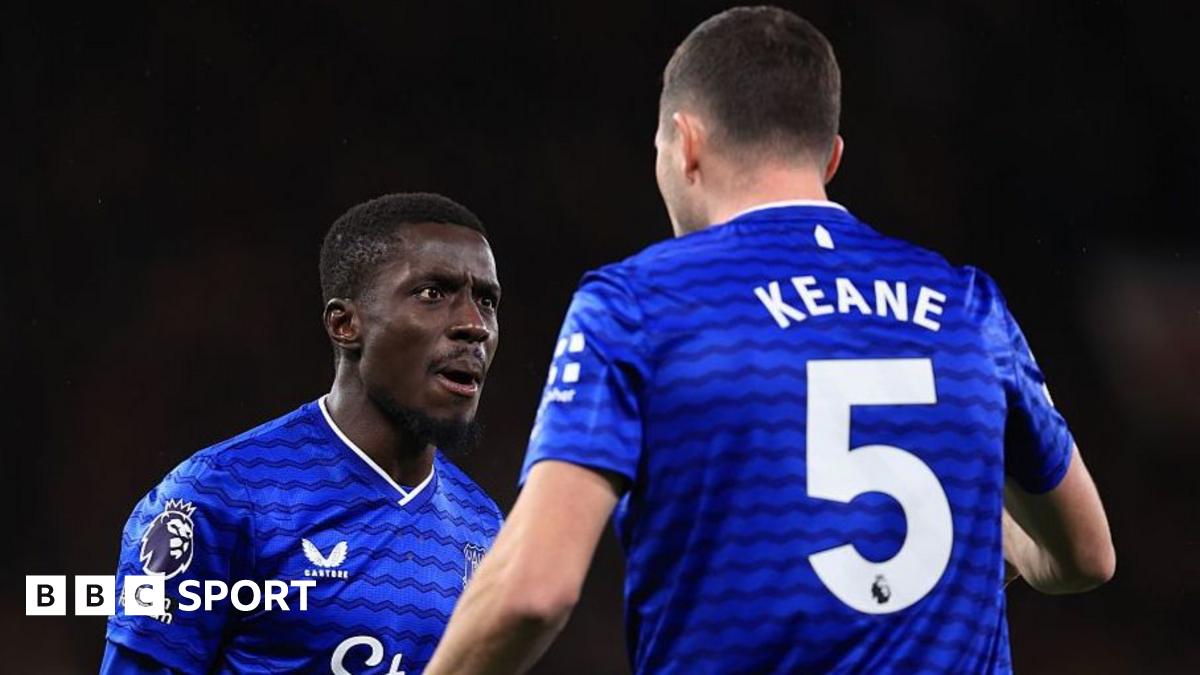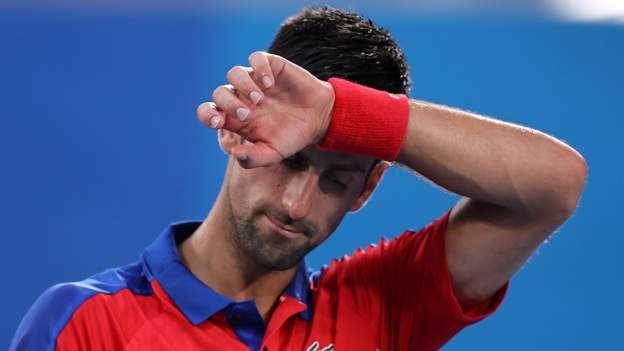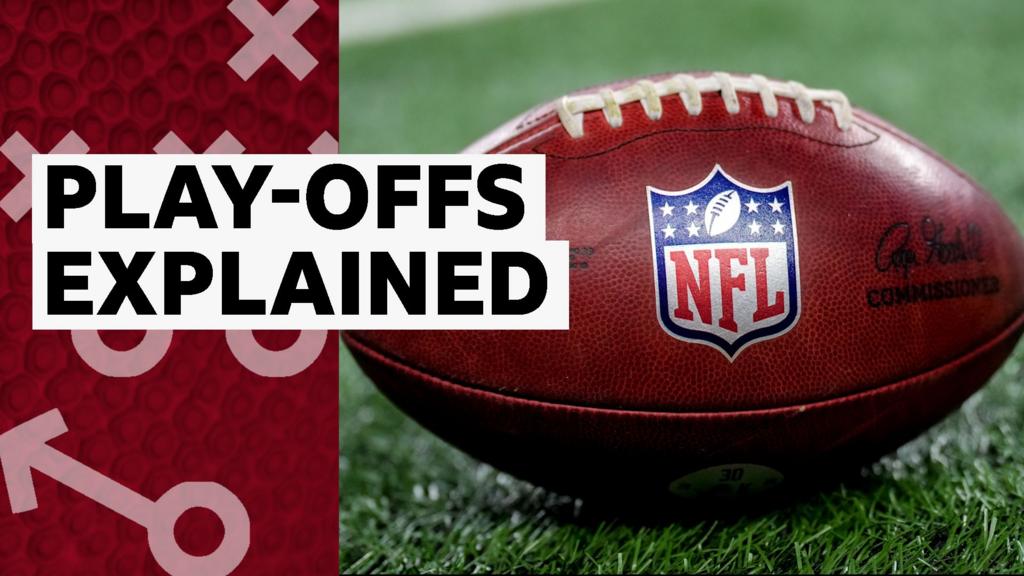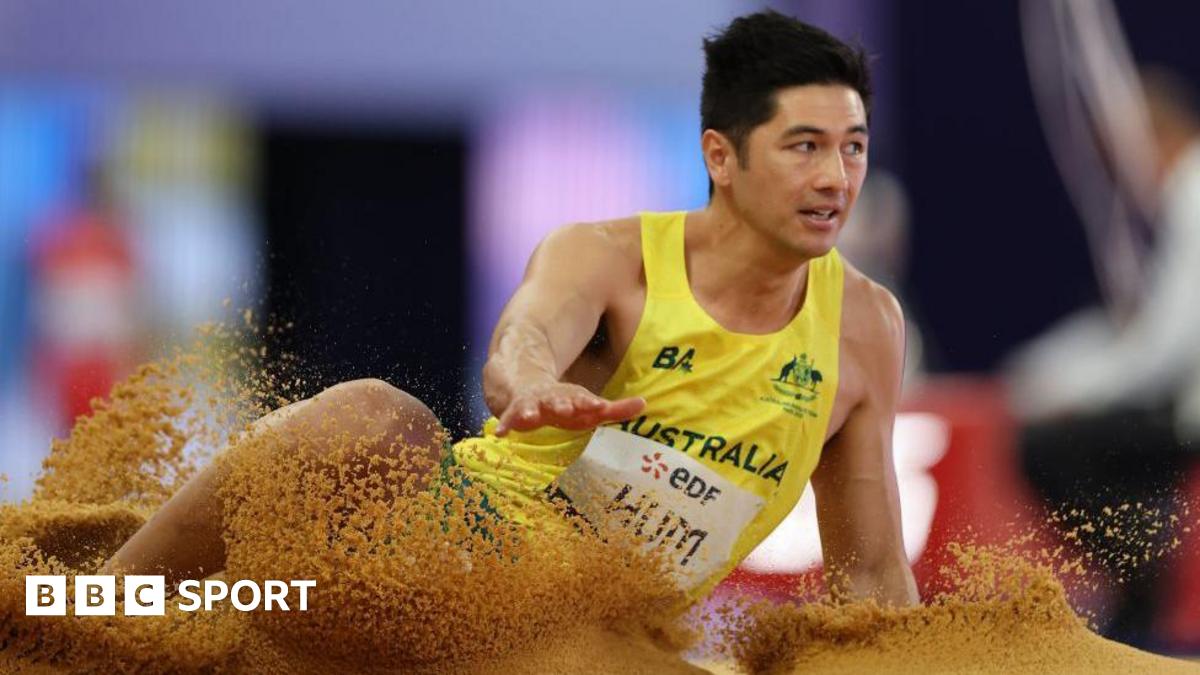Amy Hunt, the fastest under-18 sprinter in the world, hopes to make the Great Britain team for the Tokyo Olympics next summer. The 18-year-old has another challenge, however. She has just started studying English at Cambridge University. This is the second of her BBC Sport columns as she juggles sport with student life. You can read her first here.
It’s really lovely to be finally home for Christmas after a first term that took a twist that I never saw coming.
When the second national lockdown came into force in England and travel was restricted at the start of November, I faced a decision: stay in Cambridge, where I study, or re-locate to Loughborough, where I do most of my training, for a few weeks.
This was not an easy decision.
I would be going from living in a flat by myself in Cambridge, to staying with a group of athletes, one of whom is my boyfriend, in a shared house in Loughborough. I had to have a long, hard think about whether that increased risk was worth it.
Ultimately, I felt I knew them well enough and trusted them to be careful with their own health and mine. They are all distance runners themselves and were doing everything they could to stay within their own bubble and safeguard themselves.
The move also involved a lot of organisation and dialogue with the university.
Cambridge has a tradition that you have to “keep term” while you are studying for your degree. You are supposed to stay within Cambridge’s city boundary for a certain number of nights each term. For this first term of the academic year, it was 59 nights.
Moving to Loughborough would obviously have broken this historic rule.
However, 2020 is not a traditional year.
Conscious of the exceptional and abnormal context surrounding this move, I was prepared to go on Zoom and put forward my case to my tutors and supervisors, but, in the end, there was absolutely no need.
The minute I voiced my concerns, they were extremely supportive and accommodating so I ended up rushing around libraries, trying to plan ahead and pre-empt what I wanted to write on, grabbing about 20 books for the weeks ahead.
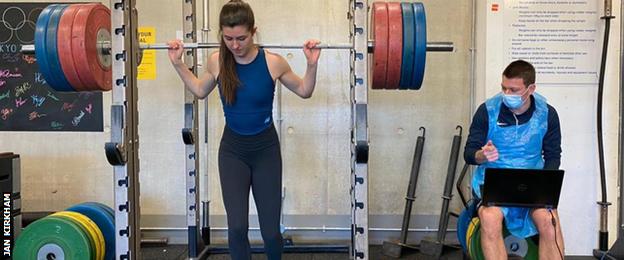
I loaded up my car with all the clothes and kit I could fit in it, in as little time as possible, before driving up the M1 that evening just before the second national lockdown started at midnight.
It was certainly quite a shift; I went from having my own kitchen, which I kept very clean, to sharing one with four boys. It was, shall we say, an interesting experience.
I began to miss Cambridge within four or five days of moving. I couldn’t cycle to libraries or coffee shops but, despite this, I found the move to be a lot of fun.
After living on my own, company was very welcome. One small victory in the kitchen was convincing my boyfriend to eat a few more vegetables!
My work was entirely uninterrupted as all my supervisions have been online from the start of term; which meant that I attended all supervisions, lectures and classes from 90 miles away.
Ultimately, I was very pleased with my decision, even if it had looked rather dramatic speed walking between the flat and my car with suitcases and boxes.
It’s ‘Bridge-mas’
I went back to Cambridge at the end of the term in order to return library books, pick up new reading material and go to my college’s first formal dinner of the academic year: ‘Bridge-mas’.
As Cambridge terms are only eight weeks, students usually head home in the first few days of December and don’t get to experience the proper Christmas buzz.
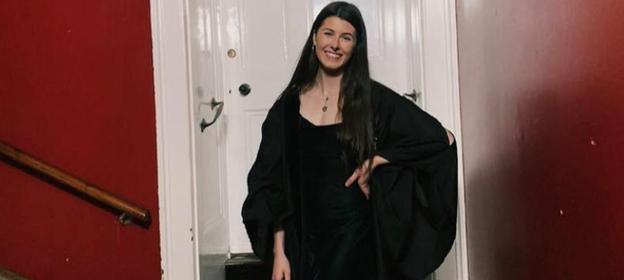
Therefore, every college hosts a formal around 25 November to start the Christmas festivities, look forward to the holidays and celebrate the outgoing Michaelmas term.
It was such a special opportunity to spend some socially-distanced time with friends after such strict Covid rules and to be able to get dressed up, including wearing a gown and heels, for an exquisite three-course meal.
In line with Cambridge tradition, there was grace in Latin before we ate, and an abundance of wine and port supplied. Although being in the middle of winter training, it was elderflower cordial for me.
The college had thought absolutely everything out and had put on the formal over three days with four different locations within college to keep as safe as possible.
It was a truly wonderful occasion, even though I had to dash off back home shortly afterwards as I had training early the next morning.
Even though I am constantly switching between work, training, socialising and travelling, I have not found the last two months as stressful as expected.
There is definitely pressure when writing an essay. We usually get set one or two a week, due less than seven days later. It is hard to balance meeting the deadline and producing high-quality work, but the quick pace is really enjoyable for the diversity of texts you can cover in a short amount of time.
One key organisational thing has been meal planning on a Sunday evening before food shopping for the week on Monday morning.
It means I can slot in things that are quick to cook when I know I’ll be busier and I have some structure when I’m tired or can’t think what to make.
My cooking has come on a lot in the past couple of months. Some of my favourites to cook are steak (again not the usual student fare but a great protein source and very quick) Cuban prawn pasta and I love a comforting korma or katsu curry.
There certainly won’t be any pressure on Christmas Day. I will probably train on Christmas Eve and in the run-up to New Year, but I will take the 25 December off and get into the Christmas spirit.
I’m a big fan of Christmas dinner as well as the occasional festive treat.
I plan to not go overboard, but equally, I am still a young athlete. I don’t want to tie myself to a ridiculously strict diet so early in my career. I often find myself quite busy and sometimes I just need a little energy boost from some stollen or a mince pie!
Plans for the future
My coach Joe McDonnell and I still haven’t pinned down plans for early 2021.
I don’t think anyone can really! So much is still up in the air, with the world indoors having just been cancelled for the year earlier this month.
Previously I have always done a busy indoor season. I’m a huge advocate for its benefits and the incredible atmosphere you get. But this year is very different. And indoors is very different from outdoors.
I will have to weigh up what I feel are acceptable risks for me, my family and my coach.
I was delighted to see the 200m return to the Diamond League programme for the outdoor season.
It was one of four events, along with 3,000m steeplechase, discus and triple jump, that organisers were planning to drop from some Diamond League events from 2020 onwards.
I felt a frustrated sadness when that initial decision was announced.
The 200m is an event which is often not appreciated for its true complexity and beauty. It provides lots of drama and so many stars.
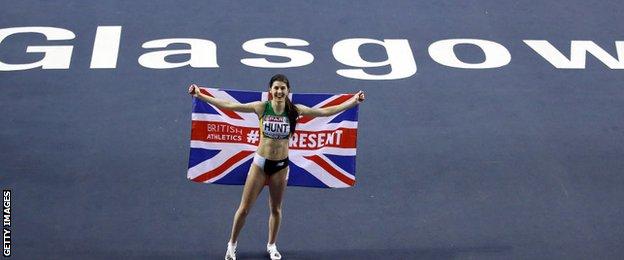
It’s reintroduction is hugely positive news and, I think, evidence of the power of athletes’ collective voice.
Athletes are rightly funded and supported based on their potential and talent as opposed to the profile of their event. But there is a big difference in public perception and media interest in different events.
Athletes need to be made more relatable and accessible building the story around them and their events so audiences see the intricate stories between rounds, rather than just a quick 60-second summing up of what has happened.
Each event is like a feature film. And for some, you only seem to ever get to see the trailer.
I have seen British Athletics head coach Christian Malcom at the Loughborough High Performance Athletics Centre nearly every day of the week; not just observing but talking to all the athletes.
I had a conversation with him just this morning about university life. Little things like that help bridge the gap between athletes, staff and stakeholders.
Athletes are ultimately far more than their sport, more than their performances. They have power, personality and influence that can really help the sport grow and should be utilised.
Amy Hunt was speaking to BBC Sport’s Mike Henson.







